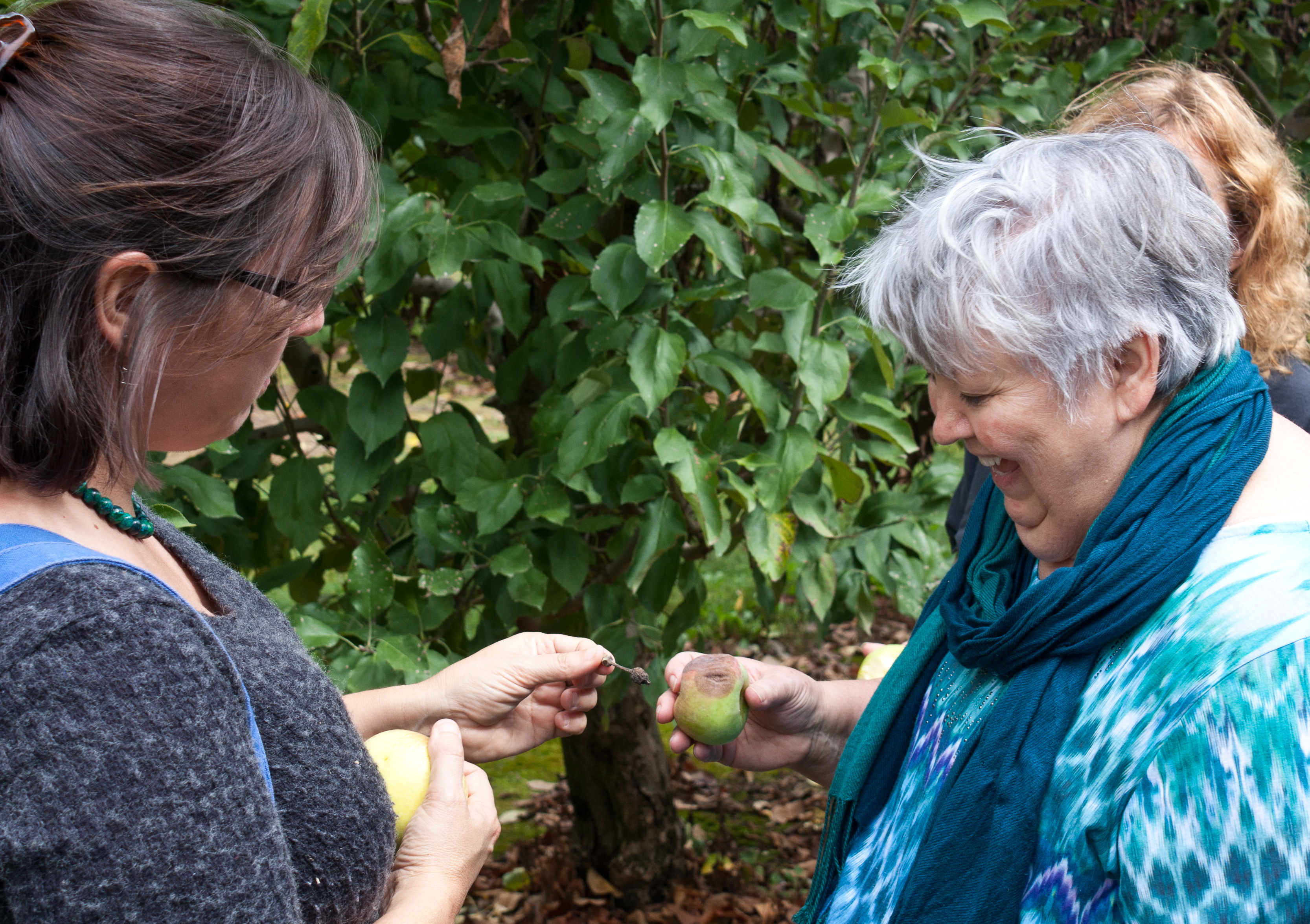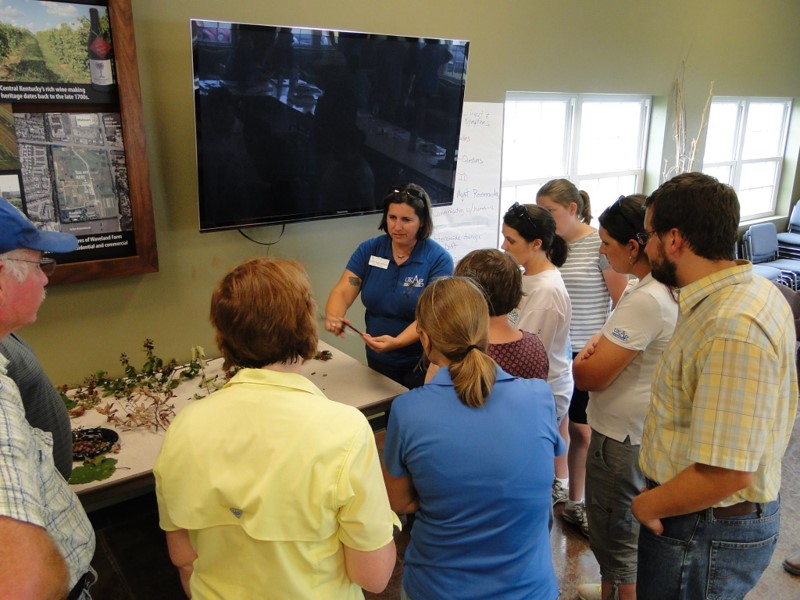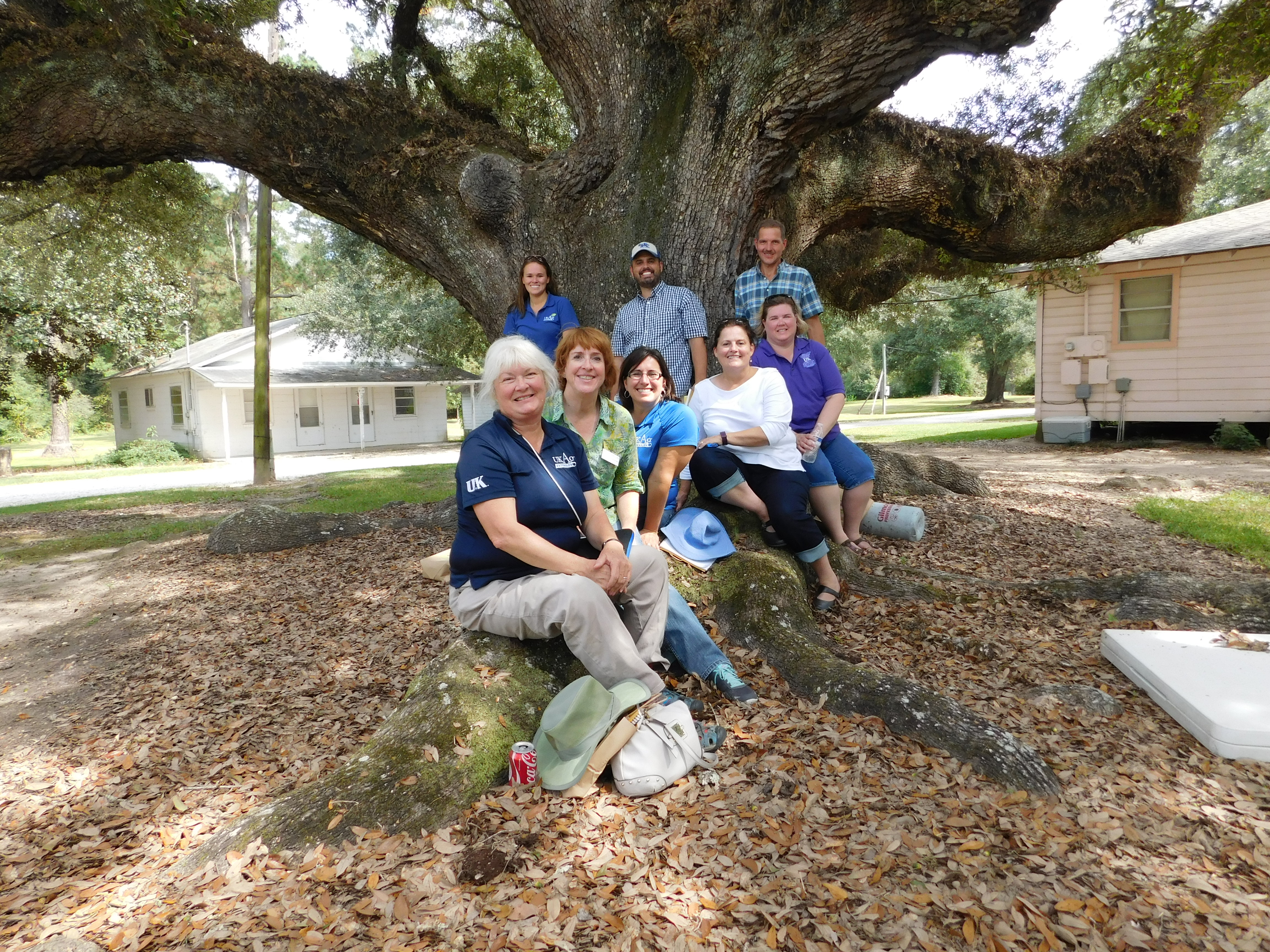Time in that position: <5 years
Distribution of efforts: 90% extension; 10% teaching
Degree held, thesis/dissertation topic: PhD with an emphasis on a mycoparasite of soybean rust; previous experience as owner of a landscape business
Current commodity assignment: Fruit crops, ornamentals, urban forestry, and hemp; I also teach a summer lab course on plant disease diagnostics
Typical workload in spring:
Spring is the beginning of the growing season, so applied research hits full swing. This includes communication with chemical companies for test fungicides, planning experiments, and communicating details with research analysts. There are also a few grower meetings and field days taking place. At the same time, I am trying to catch up on writing (winter meeting travel often has me behind schedule).
Typical workload in summer:
Summer is the ideal time to host agent in-service trainings, as the availability of disease samples (and insects if I’m collaborating with entomologists) are wide enough for hands-on trainings and practicum type workshops. These traveling dog-and-pony shows are extremely time-consuming to prepare for, but they have come to pay off; inquiries by agents are down dramatically, specialist-to-agent relationships are stronger, and higher quality samples are being submitted to the diagnostic labs. Grower visits (facilitated by agents) are usually scattered throughout my schedule. Also, I teach a lab-based graduate level class during the summer, when diseases are prevalent. This requires a day of sample collection/prep and another entire day of teaching each week. There is little time left to coordinate research and take that oh-so-rare vacation and family time.
Typical workload in fall:
Summer research continues. Extension publications and manuscripts have likely been pushed back… again. Thus, fall becomes the official “writing season.” Because outreach is a priority in my programs, I produce a large number of grower fact sheets, spray schedule worksheets, fungicide efficacy tables, and web/social media articles. I work on them year round, but in fall, I am able to complete larger pub series’ for the following growing season. Allthewhile, student mentoring and research continues. 
Typical workload in winter:
Winter is meeting season. I attend many grower association conferences, county meetings, and regional meetings. I stay on the road for a span from January 1 through April 1. This is also a good time to dream up a few new approaches to the same tired presentations. How many different ways can I present the disease triangle and help growers understand how cultural practices and sanitation fit in to their existing regimes?
Most rewarding thing about working in Extension:
Impact. There’s nothing as rewarding as knowing you’ve made a difference. Feedback from agent surveys may tell me how my trainings make their field visits more effective. Grower testimonials often indicate that reduced fungicide applications saved them thousands of dollars. And by understanding overwintering, growers tell me how they reduced inoculum and benefitted from higher yields. An apple pie or a flat of strawberries are frequently offered in appreciation for my efforts and dedication (and, yes, I accept them!). These relationships are priceless, and job satisfaction is immense.
Challenges with Extension work; what early career professionals need to know:
Extension work is as difficult as any other career in the sciences; expectations are high and hours are long. However, extensive travel can result in erratic agendas and unpredictable schedules. Further, disease outbreaks can skew your plans or disrupt your schedule. For these and other similar circumstances, individuals must be comfortable with irregularity and life on the edge! Additionally, we are often the first to encounter disease problems, problems that can be unfamiliar due to lack of experience or due to a new introduction. Sometimes that rookie feeling (insecurity or self-doubt) never goes away. Every day is a new challenge.
Put into context the way Extension is evaluated at your institution:
The tenure process feels like a roller coaster. As I prepare my dossier, though, I realize that relevance and impact are critical for promotion. If specialists develop programs based on needs and document those impacts, then Extension faculty will be appreciated and rewarded. Unfortunately, Extension positions vary so widely across agriculture (plant science, animal science, consumer science, family science, 4-H, etc), that there are few specific guidelines for tenure in Extension. The broad umbrella that was adopted for flexibility can be a disadvantage to an early career professional without a mentor.
Advice to graduate students and early career professionals who want to pursue a career in Extension:
Follow your interests. If you’re attracted to applied research, interpersonal relationships, and hands-on activities, then you may be unhappy in a lab setting. Extension may be for you. Identify your strengths and interests, and run with it. There are countless opportunities for specialists, associates, agents, and diagnosticians. Keep learning, accept internships when possible, and include a variety of disciplines within your experiences. Learn to communicate well; ask your professors for opportunities to write grower factsheets or to present your work to grower meetings. A candidate with a genuine love for this type of career will likely be recruited and hired immediately after graduate school.
